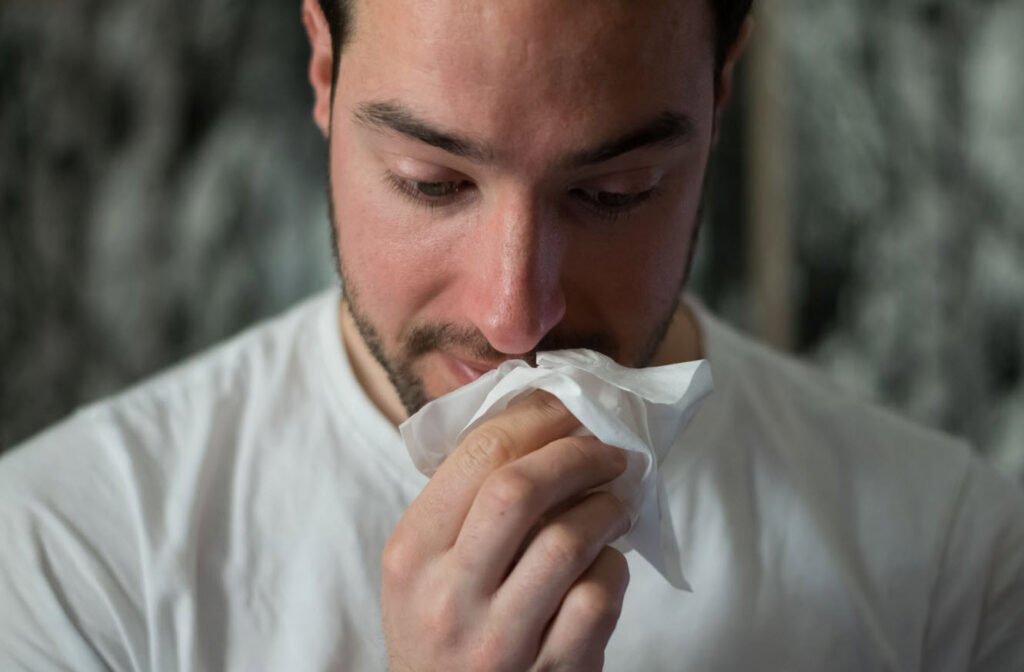
Do you suspect that you suffer from allergies? If you do, are your symptoms severe? If they are not, you may be wondering if you really need to seek medical help. While scheduling a visit with your doctor is always an option, you might still be hesitant. Before making your decision, it’s essential to weigh the pros and cons of seeking medical help when experiencing moderate to minor allergy symptoms.
The Pros of Seeking Professional Medical Help
Expert Knowledge and Diagnosis
One of the significant advantages of consulting a medical professional when you think you are suffering from an allergy is the expert knowledge you gain access to.
Healthcare providers are trained and experienced in diagnosing allergies and helping patients manage their symptoms. While it’s possible to do your own research online, nothing compares to the expertise and personalized advice a doctor can provide. A medical professional can offer insights into what might be causing your symptoms and suggest effective treatments tailored to your specific needs.
Access to Prescription Medication
Another benefit of seeing a doctor is the potential to receive prescription medication. Although doctors typically reserve prescription treatments for severe allergy symptoms, having access to such options can be comforting for many. Over-the-counter allergy relief products may not work for everyone, and in such cases, prescription medication can make a significant difference.
For individuals with food allergies, such as peanut allergies, a doctor can provide not only symptom-relief medication but also life-saving treatments like epinephrine auto-injectors, which can be crucial in an emergency.
Ease of Scheduling an Appointment
For many, scheduling an appointment with a doctor is straightforward, especially if you already have a regular healthcare provider. Regular patients often find it easy to get an appointment when needed. However, new patients might face some challenges, such as longer wait times or difficulty finding a doctor with immediate availability.
Even so, it’s possible to shop around for a good doctor, particularly one who accepts your health insurance. In most cases, you should be able to find a medical professional in your area who can see you relatively soon.
The Cons of Seeking Medical Attention
Cost Considerations
One of the most significant downsides to seeking medical attention for allergies is the cost. If you don’t have adequate health insurance, you may face high co-pays or deductibles. Without insurance, the cost of a doctor’s visit can be prohibitive. However, it’s still important to seek medical attention, especially if you have severe symptoms. To manage costs, you can look for doctors or clinics that offer income-based pricing, which can help reduce expenses.
Additionally, you may qualify for state-run programs like Medicaid, which can provide coverage and reduce the financial burden.
Time Constraints
Another common drawback of seeking medical help for non-severe allergy symptoms is the time commitment. Doctors’ offices don’t always have the most convenient hours, which can make it challenging to find time for an appointment, especially if you have a busy schedule or limited ability to take time off work.
However, some clinics offer flexible hours, including weekend or evening appointments, which can help you find a time that works for you. If you experience severe symptoms, such as difficulty breathing, it’s crucial to seek immediate care, even if it means going to the hospital.
Limited Treatment Options
Some people hesitate to see a doctor because they feel that nothing may be done beyond what they could do at home. In cases where allergy symptoms are mild, doctors often recommend over-the-counter allergy relief products. This can lead to frustration, as some might view the visit as a waste of time and money.
However, a doctor’s visit can still be valuable, even if the recommendation is for over-the-counter treatments. A healthcare provider can confirm that your symptoms are indeed due to allergies and not something more serious, providing peace of mind.
Weighing Your Options
When deciding whether to see a medical professional for allergy symptoms, it’s essential to consider the severity of your symptoms, your ability to manage them at home, and your overall health.
For minor symptoms, such as occasional sneezing or mild skin irritation, over-the-counter treatments may be sufficient. However, if your symptoms are persistent, worsening, or if you suspect a serious allergy (such as to food or insect stings), seeking medical advice is crucial.
When to Seek Immediate Medical Attention
There are certain situations where you should not hesitate to seek immediate medical attention for allergy symptoms. These include:
- Difficulty breathing: This could indicate a severe allergic reaction, known as anaphylaxis, which is life-threatening and requires emergency care.
- Swelling of the face, lips, or throat: Swelling in these areas can also signal a severe allergic reaction.
- Chest pain or tightness: This could be a sign of a serious reaction, especially if accompanied by difficulty breathing.
- Severe rash or hives: While mild skin irritation can be managed at home, a severe rash or widespread hives may require medical treatment.
In any of these cases, it’s vital to seek help immediately, either by calling emergency services or going to the nearest emergency room.
Conclusion
Suffering from allergies can be challenging, but deciding whether to see a medical professional depends on several factors. While there are costs and time considerations, the benefits of expert advice, potential prescription treatments, and the reassurance that comes from a professional diagnosis often outweigh the downsides.
If your symptoms are mild and manageable with over-the-counter products, you might not need to see a doctor right away. However, for more severe symptoms or if you’re unsure about the cause, seeking medical help is the safest choice.
In the end, your health is the most important thing, and when in doubt, it’s always better to err on the side of caution and consult with a healthcare provider.








